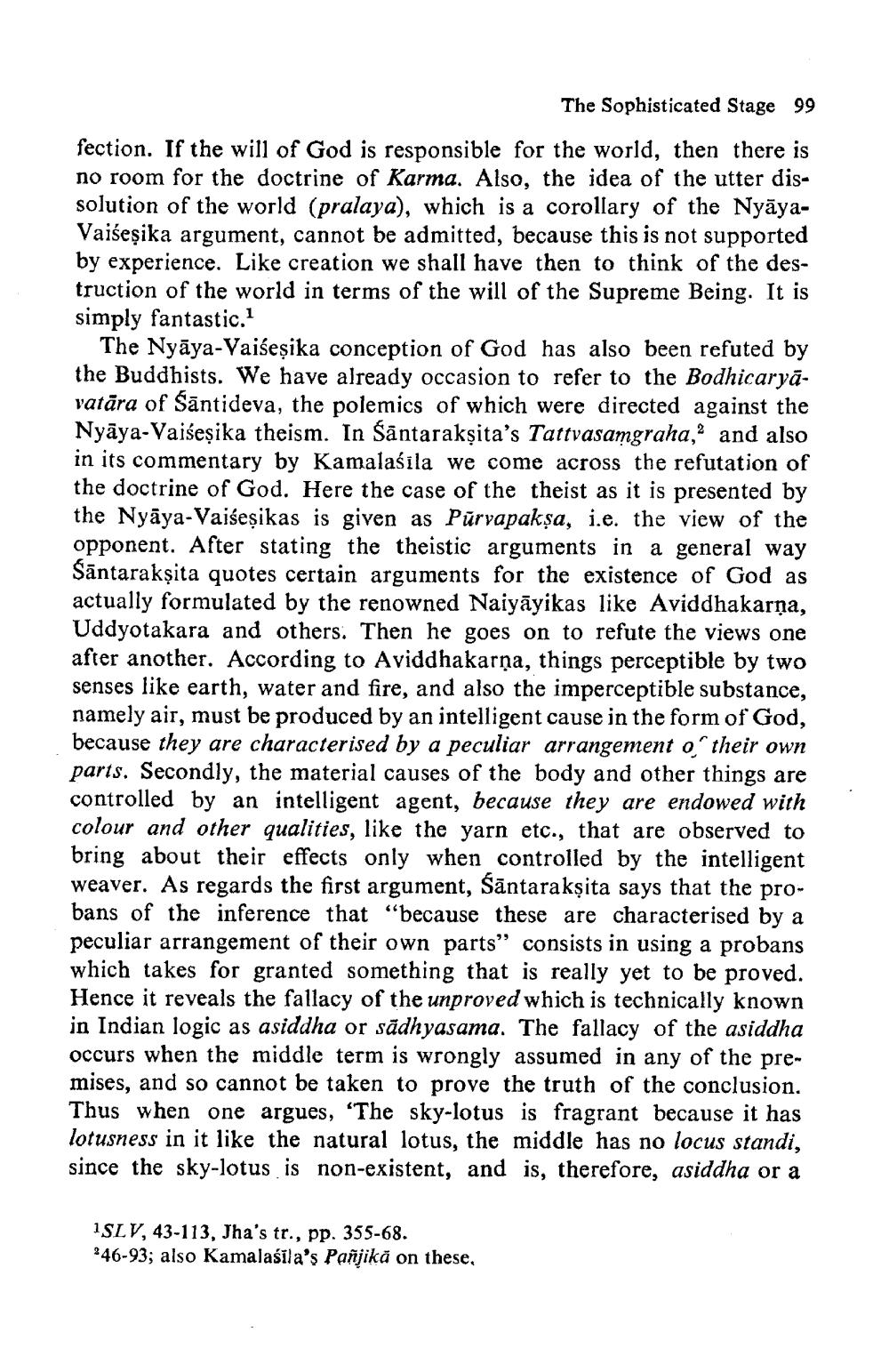________________
The Sophisticated Stage 99
fection. If the will of God is responsible for the world, then there is no room for the doctrine of Karma. Also, the idea of the utter dissolution of the world (pralaya), which is a corollary of the NyayaVaiśeşika argument, cannot be admitted, because this is not supported by experience. Like creation we shall have then to think of the destruction of the world in terms of the will of the Supreme Being. It is simply fantastic.1
The Nyaya-Vaiśeșika conception of God has also been refuted by the Buddhists. We have already occasion to refer to the Bodhicaryavatāra of Santideva, the polemics of which were directed against the Nyaya-Vaiseṣika theism. In Santarakṣita's Tattvasamgraha, and also in its commentary by Kamalaśila we come across the refutation of the doctrine of God. Here the case of the theist as it is presented by the Nyaya-Vaiseṣikas is given as Pūrvapakṣa, i.e. the view of the opponent. After stating the theistic arguments in a general way Santarakṣita quotes certain arguments for the existence of God as actually formulated by the renowned Naiyayikas like Aviddhakarṇa, Uddyotakara and others. Then he goes on to refute the views one after another. According to Aviddhakarṇa, things perceptible by two senses like earth, water and fire, and also the imperceptible substance, namely air, must be produced by an intelligent cause in the form of God, because they are characterised by a peculiar arrangement of their own parts. Secondly, the material causes of the body and other things are controlled by an intelligent agent, because they are endowed with colour and other qualities, like the yarn etc., that are observed to bring about their effects only when controlled by the intelligent weaver. As regards the first argument, Santarakṣita says that the probans of the inference that "because these are characterised by a peculiar arrangement of their own parts" consists in using a probans which takes for granted something that is really yet to be proved. Hence it reveals the fallacy of the unproved which is technically known in Indian logic as asiddha or sadhyasama. The fallacy of the asiddha occurs when the middle term is wrongly assumed in any of the premises, and so cannot be taken to prove the truth of the conclusion. Thus when one argues, "The sky-lotus is fragrant because it has lotusness in it like the natural lotus, the middle has no locus standi, since the sky-lotus is non-existent, and is, therefore, asiddha or a
1SLV, 43-113, Jha's tr., pp. 355-68.
246-93; also Kamalaśila's Pañjikā on these,




